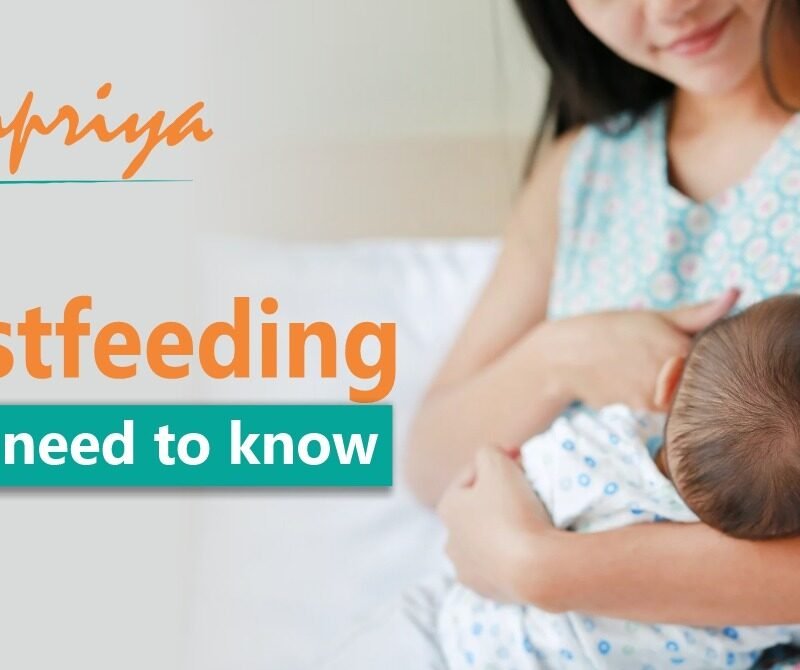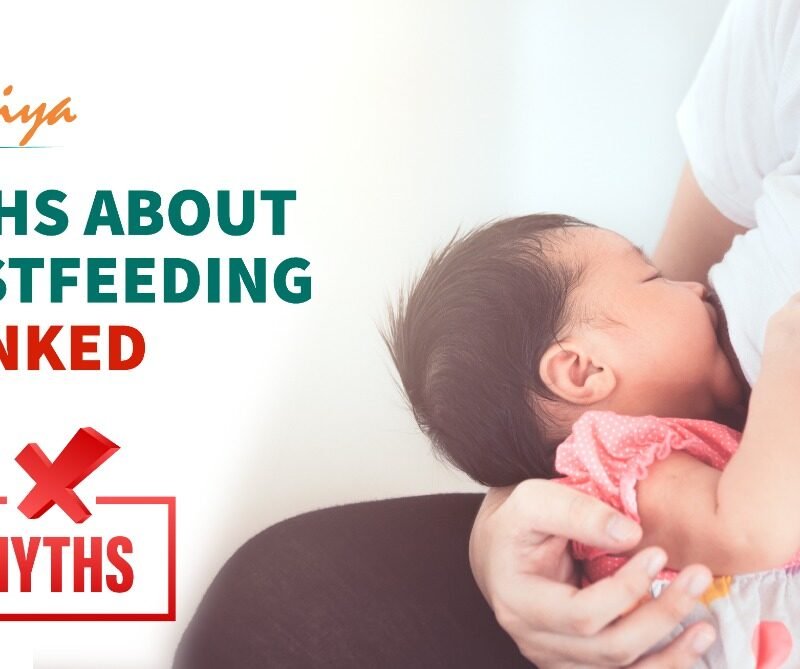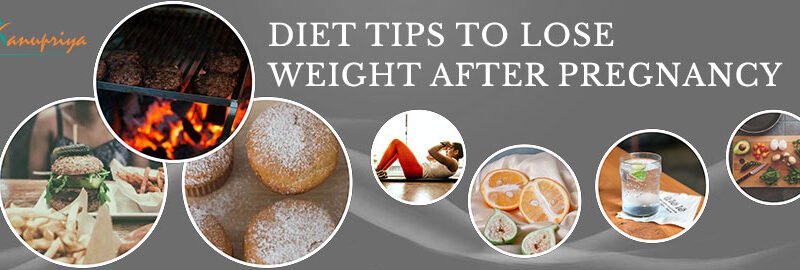Breastfeeding burns extra calories, thus it can help you lose weight faster after your pregnancy. It releases the hormone oxytocin, which aids in the return of your uterus to its pre-pregnancy size. Breastfeeding also reduces your chances of developing breast & ovarian cancer and osteoporosis.
It saves you time and money because you don't have to buy and measure formula, sanitise nipples, or reheat bottles. It also allows you to spend quality time with your newborn and bond.
What is breast milk?
Your breasts create perfect "first milk" for the first few days after birth. It's known as colostrum. Colostrum is thick and yellowish, and there isn't much of it, but it's enough to meet your baby's nutritional requirements. Colostrum aids in the development and preparation of a newborn's digestive tract for the digestion of breast milk and enhances immunity of the newborn.
Colostrum is the earliest phase of breast milk, and it changes throughout time to provide your baby with the nutrition he or she requires as it grows. Transitional milk is the name of the second phase. Your body makes this as your colostrum is eventually replaced by mature milk, the third phase of breast milk.
After colostrum, you'll start producing transitional milk, followed by mature milk - 10 to 15 days after giving birth, which will provide your baby with all the nutrition they require until 6 months of age.
Breastfeeding exclusively for 6 months is recommended by experts. Your breasts may produce less milk if you supplement with formula as the production of milk is dependent on demand and the sucking action of the infant.
During lactation, there are certain nutritional requirements that must be met.
It's worth noting that nutritional requirements during nursing are higher than during pregnancy. The birth weight of the baby doubles in the first four to six months of its life. The milk produced during this time has to meet the growing baby’s needs.
Nutritional requirements also alter with maternal age, which can have a significant impact on maternal nutritional status and milk composition, particularly in teenage or impoverished mothers.
Some points to keep in mind:
1. Iron: Iron supplementation is commonly prescribed to compensate for blood losses incurred during childbirth and menstruation. It should be noted that some women who exclusively breastfeed for at least six months experience amenorrhoea and hence do not lose iron through menstruation during that time.
2. Calcium: Calcium is required during lactation. The regulatory processes of the body change so that there is increased calcium absorption, decreased renal excretion, and enhanced bone calcium mobilisation. The American Academy of Paediatrics recommends that lactating mothers consume five servings per day of calcium-rich foods of any kind, such as low-fat yoghourt or cheese, as well as other calcium-rich non-dairy foods, such as fish consumed with its bones (for example, canned sardines), salmon, broccoli, sesame seeds, etc. to meet their calcium requirements.
3. Protein: When compared to calorie requirements, the increase in protein requirements during lactation is minimal. Consumption of protein-rich foods can meet the increased requirements during nursing (for example, one egg, 25g of cheese or 175g of milk). Casein is the protein component of milk that is required for calcium and phosphate absorption in the infant's intestines and has immunomodulatory properties.
4. Carbohydrate: Lactose is the most abundant carbohydrate in human milk and is critical for the continued brain development of infants. Despite the fact that lactose concentrations are less variable than those of other nutrients, overall output is lowered in moms who are severely malnourished.
5. Water: It makes about 85–95 percent of the total volume of milk. Many people believe that increasing water intake will boost milk production, but multiple studies have shown that forcing fluid intake beyond what is required to quench thirst has little effect on lactation.
6. Salt: The salt content of colostrum is higher than that of mature milk. There is no evidence of a link between salt intake during lactation and sodium levels in breast milk, according to research. However, tiny amounts of salt, fortified with iodine, should be consumed (iodised salt).
7. Vitamins: The content of several vitamins in breast milk is determined by the mother's levels, and deficiency in the mother might result in a deficiency in the newborn. This is especially true for thiamine (B1), riboflavin (B2), and vitamins B6, B12, E, and A, thus increasing your consumption during lactation is recommended.
Contact Kanupriya Khanna if you need specialist advise on your baby's diet during the pandemic. She is a Senior Consultant Nutritionist and Dietitian with over 18 years of expertise in the field of nutrition and is regarded as one of the best nutritionist /dietitian in Delhi.
The ‘first milk’ – or colostrum – is rich in antibodies and gives newborns an immunity boost while their own immune systems are still developing.
Did you know? Breastfeeding protects your baby from ear infections, diarrhoea, pneumonia and other childhood diseases. Moreover, did you know that it also protects the mother from diabetes, breast and ovarian cancers and heart disease.
Myth 1: Breastfeeding is complicated.
Fact: Breastfeeding is a simple process.
Babies have a natural instinct to seek their mother's breast. Some moms may require practical assistance in ensuring that their baby is properly latched to the breast initially. For both mothers and newborns, breastfeeding comes naturally after the first few tries.
Myth 2: Breastfeeding is painful
Fact: Breastfeeding is generally not painful. Sometimes it is painful due to sore nipples. Sore nipples can be treated with topical application of certain medicated creams, desi ghee, etc.
Myth 3: Before breastfeeding, you should clean your nipples.
Fact: It is not required to wash your nipples before breastfeeding. When babies are born, they are already familiar with the smells and sounds of their mother. The nipples create a sense of security and familiarity for the baby.
Myth 4: To give the mother time to rest immediately after birth, you should separate the infant and the mother.
Fact: Skin-to-skin care, also known as kangaroo mother care, is frequently encouraged by doctors, nurses, and midwives shortly after birth. Bringing your baby into direct contact with your skin, so that their skin is against yours, is a crucial step in assisting both mother and baby in initiating breast feeding.
Myth 5: While breastfeeding, you should only eat bland foods.
Fact: Breastfeeding women, like everyone else, require a well-balanced diet. From the moment they are born, babies are exposed to their mothers' eating preferences. It is best to consult a dietitian if a mother believes her infant is reacting to a certain meal she eats.
Myth 6: If you're breastfeeding, you can't take any medications.
Fact: It's critical to tell your doctor that you're nursing and to read the directions on any over-the-counter drugs. You may need to take medicines at a specific time interval, in a specific dosage, or to use a different formulation altogether. Consult your doctor before starting any medication while breast feeding.
Myth 7: Clingy babies are those that have been breastfed.
Fact: Every child is unique. No matter how they are fed, some are clingy and some are not. Breastfeeding not only gives the finest nutrition for infants, but it is also beneficial to their brain development. Because breastfed babies are held frequently, breastfeeding has been demonstrated to improve bonding with their mothers.
Contact Kanupriya Khanna, a Sr. Consultant Nutritionist & Child Nutrition Specialist in Delhi, with over 18 years of experience in this field, if you need expert advice on nutrition and post-natal health.
Pre-natal nutrient needs, what and how much?
"Eating for two" is a common phrase, but what does it truly mean for pregnant women? Although it may appear that pregnancy is an excuse to eat as much as you want, getting the right amount of calories and nutrients is essential for a healthy pregnancy.
The following guide for what to eat, how much to eat, and when to opt for a supplement, can help pave the way to good health during pregnancy.
Counting Calories for Pregnancy
While there are exceptions, many women are shocked to hear that during the first trimester of pregnancy, no additional calories are required. However, by the second trimester, an expectant mother requires an extra 250-300 calories per day. That's around the same as one or two more snacks. You may require an additional 450 calories per day during the third trimester, which is equivalent to one additional small meal.
Weight gain is natural and encouraged during pregnancy, while losing weight is not recommended. The recommendations below, based on the Institute of Medicine’s guidelines, indicate how much weight gain is considered healthy, based on a mother's pre-pregnancy body mass index (BMI). But, as always, it's important to consult with your dietitian before making any major changes to your diet:
- Underweight (BMI <18.5): Weight gain of 12 – 18kgs (28-40 lbs.)
- Normal (BMI 18.5-24.9): Weight gain of 11- 15kgs (25-35 lbs.)
- Overweight (BMI 25-29.9): Weight gain of 6-11kgs (15-25 lbs.)
- Obese (BMI 30+): Weight gain of 5-9kgs (11-20 lbs.)
- Pregnant with twins: Weight gain of 11-20kgs (25-45 lbs.)
Important Nutrients for Pregnant Women
The following are six nutrients that expectant mothers should consume to promote a healthy pregnancy and birth.
- Folate
Folate has been identified as a critical nutrient for foetal growth by healthcare professionals over the years. Folate is required for the development of the foetal brain and spinal cord, and deficits can result in neural tube abnormalities. In fact, before conceiving, women should make sure they are getting adequate folate.
Foods including legumes, nuts and seeds, eggs, leafy greens, broccoli, and many other fruits and vegetables, as well as supplements, should provide at least 600 micrograms (mcg) of folate per day. If you're thinking about getting pregnant or expecting, talk to your doctor about folic acid.
- Iron
Iron is a mineral that aids in the transport of oxygen to the mothers’ and foetus' organs and tissues. During pregnancy, both the mother and the baby's blood volume expands, and their iron requirements nearly treble. For pregnant women, a daily iron dose of 27 mg is suggested. Pulses, lentils, leafy greens, nuts and seeds, and fortified grains are all good sources of iron, but doctors recommend taking an iron-supplement as well. Vitamin C-rich foods, such as citrus fruits, peppers, strawberries, can enhance iron absorption when combined with iron-rich diets or supplements.
- Calcium
Calcium is essential for foetal bone and skeletal development, as well as maternal bone health. A baby will draw calcium from the mother's stores if the mother's diet is deficient in calcium, which might damage the mother's bones. The daily calcium need for expecting mothers is 1,000 mg, which can be met by eating 3-4 cups of dairy each day. Calcium can also be found in soy products, broccoli, tinned salmon, dark leafy greens, and sardines. Also, divide your calcium intake. To enhance absorption, take no more than 500 mg at a time. This vital nutrient is also available in supplement form.
- Vitamin D
Though a mother’s vitamin D needs do not increase during pregnancy it is important to maintain adequate intake. Vitamin D works in conjunction with calcium for the development of fetal bones and skeletal system. The vitamin D recommendation for pregnant women is 600 international units (IU) a day or 15 mcg, which you can get from the sun, fortified milk, fatty fish, eggs, or from a supplement.
- Choline
The American Medical Association (AMA) has found that choline may help with brain and spinal cord maturation during pregnancy. Choline is found naturally in animal products, eggs, beans and most nuts. According to the National Institutes of Health, this vitamin is frequently included to baby formulae also, because of its significant health advantages.
- Fiber
Constipation affects many pregnant women at some point throughout their pregnancy. Consume enough of fiber-rich fruits, vegetables, beans, and whole grains to avoid it. Drink plenty of water and get between 25 and 30 gm of fibre every day.
Every stage of life necessitates proper nutrition, but pregnancy and the months afterwards entail special dietary requirements for both women and kids. You and your baby have the best chance of being happy and healthy, not just during pregnancy, but also afterwards; if you eat a well-balanced diet and drink enough of water.
For expert advice, you can contact Kanupriya Khanna, a Senior Consultant Nutritionist & Dietitian holding more than 17 years of experience in child nutrition. Because of her sheer involvement in making a difference in people’s life by inculcating healthy food habits and lifestyle, Kanupriya Khanna is ranked as one of the best dietitians in Delhi. (Dietary needs of Children During the Pandemic 🙂
Breastfeeding is vital for the nutrition and development of infants. The World Health Organization recommends new mothers continue to breastfeed their baby for the first six months.
But, due to the recent COVID-19 outbreak, concerns have been raised about whether COVID positive mothers should breastfeed their baby or not? New mothers are concerned about the transmission of the virus through breastmilk.
COVID guidelines for lactating mothers:
o Do not discontinue breastfeeding
Until now, the virus has not been found in breast milk. New mothers can continue to breastfeed while following COVID protocols:
- Wear a mask during nursing your baby
- Sanitise your hands before touching the baby
- Disinfect the surfaces you touch regularly
o Use a cup and spoon if you are can't breastfeed
If you are too sick to breastfeed, then use a clean cup and spoon to feed your baby. You can express your milk and ask any non-infected family member to feed the baby. But always wear a mask and sanitise your hands while expressing.
WHO Recommendations on Breastfeeding during COVID-19
WHO recommends that suspected or confirmed COVID positive mothers should not discontinue breastfeeding. The benefits of breastfeeding extensively surpass the possible risks for transmission. The mother and the child should establish skin to skin contact, including Kangaroo mother care, immediately after birth.
Conclusion- Can COVID Positive Moms Breastfeed?
The pandemic has created many doubts among new mothers that whether feeding breast milk during this pandemic is safe or not. But your breast milk is a major food for your baby and it provides the required nutrition that is necessary for your baby's development. So, keep breastfeeding your baby during the pandemic.
In case you want any expert advice on your baby's nutrition during this pandemic, then contact Kanupriya Khanna. She is a Senior Consultant Nutritionist and Dietitian with over 18 years of work experience in child nutrition and is known as one of the best dietitians in Delhi for child nutrition.
Also Read: How to tackle high sugar level post COVID-19?
For new mothers, breastfeeding can be a very overwhelming experience. Breastfeeding techniques play a very important role in feeding your baby. In this article, we will mention all you need to know about them. In order to feed effectively, your baby has to wake up and let you know that he or she wants to feed. A baby should be hungry 8 to 12 times a day.
Some most common signs of demonstrating hunger are licking, making sucking movements, rooting, bringing hands near the mouth and squawking. Crying is a very late representation of being hungry and till that time, it becomes very difficult for mothers to make their baby latch because of frustration. If such a case happens, let your baby calm down before you start nursing.
Types of breastfeeding techniques
Effective Breastfeeding techniques are very important because if your baby is in a good position, he or she can feed better. Some common breastfeeding positions are as follows:
Cradle
In cradle position, the baby is held in the crook or elbow on the same side as the breast to be used for nursing. The breast can be supported by the opposite hand and the baby's body is rolled in towards the mother's body.
Cross-Cradle
In the cross-cradle position, the baby's head should be supported by the hand opposite to the breast and then feed him or her by supporting your breast with your hand.
Football or clutch
The baby's head is supported by your hand on the same side as the breast for feeding. The baby's body is supported by a pillow.
Side-lying using modified cradle
In this position, the baby and mother lie next to each other and the mother uses a pillow to support her arm. This position is considered good for feeding as the baby's head is at a good angle.
Laid-back breastfeeding
In laid back position, the mother leans back in a recliner position and the baby is lying on his or her stomach and the baby's body is pressed against the mother. This is a very relaxing position for both mother and baby. If you have had a C-Sec, then this is the best position for you.
Conclusion- All you need to know about breastfeeding techniques
No matter what position you choose, always bring the baby to your breasts, not your breast to the baby. Sit in a comfortable position and support the baby's body using bed, pillow or cushion. In order to swallow and breathe during feeding, your baby must be in good alignment. If you are still not sure about your breastfeeding technique, then you can contact Kanupriya Khanna, a Senior Consultant Nutritionist & Dietitian and one of the best dietitians in Delhi with more than 17 years of work experience. She is an expert in the postnatal health and lactation. If you need an expert advice then she can help you with a lot of your queries.
Also read: How To Take Care of Your Toddler During Covid?

Vitamin D Supplementation in Pregnancy- An overview
One of the major sources of vitamin D is Sunlight and it is used by the body to
absorb calcium for healthy bones and teeth. Vitamin D is a fat-soluble vitamin and a
key modulator of calcium. Apart from sunlight, vitamin D is also found in oily fish,
eggs, and fortified products. The role of vitamin D in pregnancy is crucial for bone
metabolism. The latest evidence suggests that people who fall under the high-risk
group like vegetarians and women with limited sunlight exposure are more likely to
be affected by Vitamin D deficiency. In addition, infant's vitamin D level is largely
dependent on the maternal Vitamin D status.
Effects of vitamin D deficiency in pregnancy
Vitamin D is one of the most important supplements in pregnancy as its deficiency in
pregnant women can create pregnancy complications like pre-eclampsia, diabetes,
preterm birth, and small babies. Even after birth, babies born with vitamin D
deficiency suffer from bone growth, or even rickets in severe cases.
During pregnancy, Vitamin D deficiency also results in disordered skeletal
homeostasis, congenital rickets, and even fractures in infants.
What are the normal Vitamin D levels in pregnancy according to different
reports?
As per Institute of Medicine recommendations, 20ng/ml in pregnancy is normal,
whereas the Endocrine Society recommends 30ng/ml. Most experts agree that 1000-
2000 international units daily are safe during pregnancy.
According to the Food and Nutrition Board at the Institute of Medicine of the National
Academies, the intake of 600 international units per day is sufficient during
pregnancy.
Vitamin D Supplementation in Pregnancy:
Conclusion
The information on optimum vitamin D levels can be very overwhelming for most
people, but we cannot ignore the importance of Vitamin D supplements needed
during pregnancy. It's often recommended that you must seek medical advice and
nutritionist advice to make sure your vitamin D levels are optimum. Kanupriya
Khanna, a well-renowned name in pre and post-natal health and is one of the best
dietitians in Delhi with over 17 years of experience can help you with your pre and
post-natal nutrition needs.
Also Read: 10 Varieties Of Root Vegetables And Their Incredible Health Benefits During Pregnancy
In today's busy lives, people end up inculcating unhealthy food choices that ultimately damage the proper functioning of their organs. Your diet plays an important role in achieving a healthy pregnancy. Recent research shows that your diet plays an important role not just in helping you become pregnant, but can also decrease the amount of time it'll take for you to conceive.
The true fertility nutrition lies in healthy fats, plant-based proteins, and whole grains. These food items help in regulating blood glucose and insulin levels which results in healthy ovulation and subsequently pregnancy.
According to studies by Harvard T.H. Chan School of Public Health, the intake of trans fats and foods like processed meats and sweetened beverages negatively affects the fertility of a woman. Another study conducted by the Harvard School of Public Health indicated that consumption of trans fats and animal proteins resulted in ovulatory disorder in over 19000 women.
A 2009 study published in the medical journal "Fertility & Sterility" states that couples who adhered to the Mediterranean diet had better rates of conceiving. Mediterranean diet includes a higher intake of vegetable oils, vegetables, fish, and legumes. The study also showed that a higher intake of B-vitamins positively affected fertility.
Another study published in Obstetrics & Gynaecology journal stated that higher intake of monounsaturated fats, vegetable protein sources, low glycaemic carbohydrates, high-fat dairy, multivitamins, and iron through dietary intake significantly increased the fertility rates in their subjects.
By looking at these studies, we can clearly say that there is a very strong relationship between one's fertility and diet.
A balanced diet is extremely important for hormones to function properly, but when stress is placed on the system, the body's natural chemical rhythm faces a toll.
Not able to maintain a proper weight is also the main cause of rising cases of infertility in women. Overweight or underweight women have shown higher instances of infertility and a lower IVF pregnancy rate. Excess weight also worsens the condition of polycystic ovary syndrome (PCOS) which also affects fertility in women. One of the leading symptoms of PCOS is inconsistent ovulation and irregular cycles.
Here is the list of food items you can take to optimize your diet and improve your fertility:
- Whole fruits and vegetables
- Omega-3 fatty acids
- Whole grains
- Raw Nuts
- Legumes
- Extra virgin olive oil, which is also a great source of monounsaturated fat
Food items like refined carbohydrates, trans fats, highly-processed foods, alcohol, excessive caffeine should be avoided by women who are trying to get pregnant or undergoing any fertility treatment.
To know more about fertility nutrition, contact Kanupriya Khanna, one of the best female fertility nutritionists in Delhi to start your journey towards a healthy pregnancy.
Women know that they need to follow the best diet for conception, however, many are not aware that the pH level in their body can affect the fertility rate, and that eating an alkaline diet can help boost fertility.
How Does pH Level Affect Fertility?
An acidic diet or too much acidity in the body affects the cervical mucus. It becomes difficult for the sperms to thrive in that acidic environment. This increases the chances of infertility. However, as per some studies, by consuming more alkaline-forming foods one can improve the quality of cervical mucous.
How to Determine The pH Level?
Blood or urine tests determine your body’s pH level. A pH level between 7.3 to 7.4 is considered normal for a woman who is trying to conceive.
A number of women face perinatal mood and anxiety disorders. It is estimated that 1 in 6 women suffer from this disorder. This illness is influenced by many factors. Some of them are listed below:
Physical and mental stress from pregnancy, childbirth, and caring for a new baby
Difficult or traumatic childbirth experiences
Lack of postpartum support
Lack of family or financial support
Limited access to healthcare facilities/ treatment
Recent exposure to psychological stressors
Previous mental illness
Hormonal imbalance
Genetic predisposition
Lacking nutrients or a healthy diet plan
If you are feeling anxious, or simply struggling to cope up with the post-pregnancy weight, have a read below. we have listed down some great tips to help you lose that extra pounds after delivery.
offer numerous health benefits. A variety to choose from, each of them add a nutritional value to the dining table.
In this section, let’s explore the health benefits of different red vegetables
• Sweet Potato
Vibrant and delicious - Rich in
fiber, Vitamin C, Vitamin A, and several other antioxidants like beta-carotene and
It is the perfect time to get cozy and enjoy the beauty of the season. Hence, we have come up with a list of herbs and spices to help you stay warm in this cold chilling weather an have a fun time too:
1. Tulsi
Tulsi is a popular Indian herb. Ensure you include it in your healthy diet plan. A good source of calcium, zinc, iron, vitamin A and C, tulsi helps the body fight all cold borne diseases like cough, cold, sinusitis, pneumonia, etc. It is also a powerful antiseptic and antibacterial agent for various other respiratory and gastric disorders.
Tip: To keep the body warm - add a few tulsi leaves with 1 teaspoon of honey to your tea.












